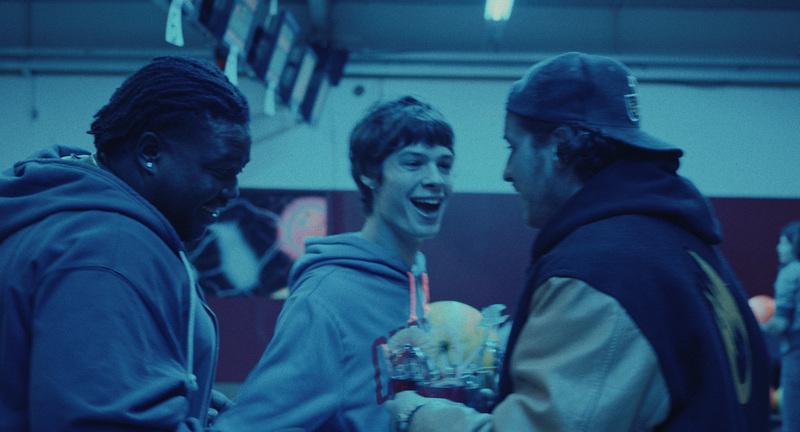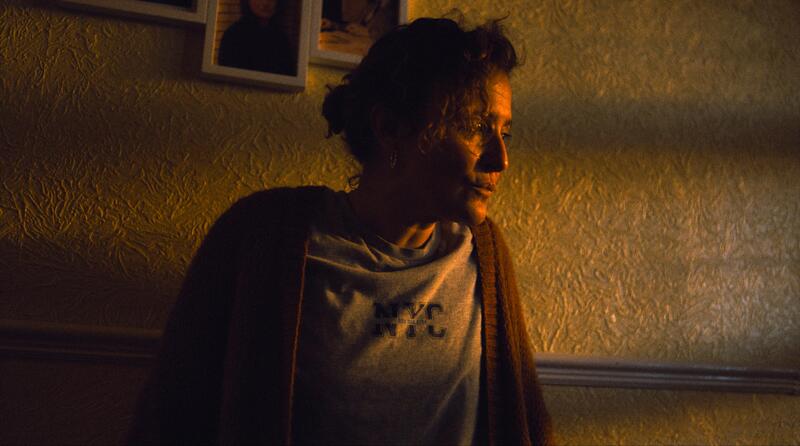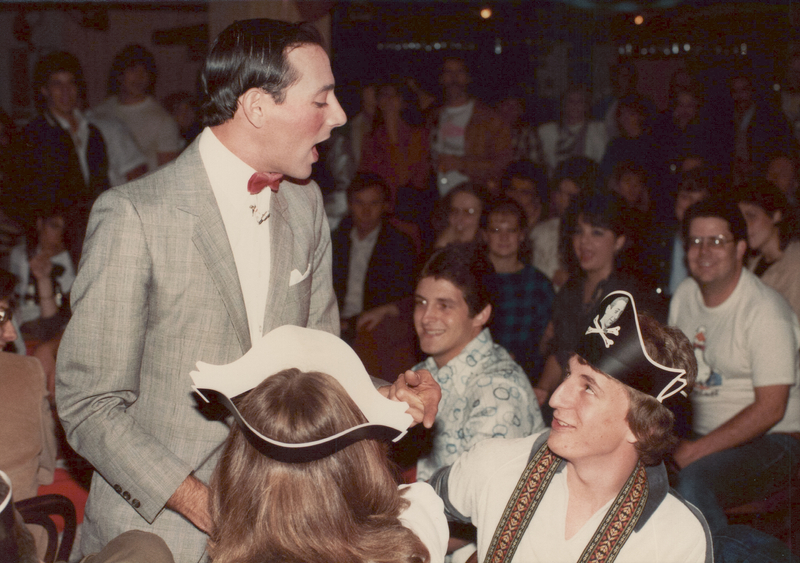
Addiction, Denial, and the Cost of Caring
MOVIE REVIEW
Meteors (Météors)
–
Genre: Drama
Year Released: 2025
Runtime: 1h 49m
Director(s): Hubert Charuel
Writer(s): Hubert Charuel, Claude Le Pape
Cast: Paul Kircher, Idir Azougli, Salif Cissé, Elsa Bouchain, Stéphane Rideau
Where to Watch: shown at the 2025 Cannes Film Festival
RAVING REVIEW: Quiet chaos builds when people outgrow their circumstances but don’t know where else to go. This film taps into that unspoken tension, telling a story rooted in forgotten towns, strained friendships, and the toxic weight of everything left unsaid. It’s not a story about triumph or transformation—it’s about hanging on when the past is pressing in and the future never really shows up.
This film is about three men trying—and mostly failing—to keep each other afloat. Tony, who’s managed to pull together a small foothold in the construction world, pulls his childhood friends Mika and Daniel into jobs at a nuclear waste facility. The gig might be unglamorous, but it beats the alternative. The trio isn’t united by ambition or nostalgia—they’re connected by dormancy, by a shared history that’s hard to walk away from even when it becomes painful to remain in.
The film smartly shifts its vision to Mika, who wants to help without knowing how. Instead of peering directly into addiction from the viewpoint of the one suffering, it focuses on the person watching from just outside the blast radius—Mika’s attempts to help Daniel are more about maintaining connection than finding solutions. There’s a slow burn of dread as you realize good intentions don’t always translate into good outcomes. And that’s one of the film’s strongest moves—it resists the urge to offer simple redemption.
The casting of Paul Kircher, Idir Azougli, and Salif Cissé gives the film an unforced authenticity. Their connections feel lived-in, even though the actors came from very different corners of life and had no history together before filming. What sells it is their physical language—the tired comfort of old friendships that no longer work the way they used to, but still feel impossible to end. Their performances don’t rely on big emotional swings but on subtle shifts in tone, the way a shared silence can hold more weight than any argument.
The town of Saint-Dizier, with its worn-down edges and aging buildings, isn’t just there—it’s part of the framework. Director Hubert Charuel doesn’t romanticize it or make it bleak. Instead, the setting reflects the characters themselves: worn, waiting, and haunted by what used to be. The nuclear facility serves as an emotional metaphor. Working around buried waste becomes a mirror of the internal baggage each character tries to suppress.
This is a community where economic survival depends on hiding away what’s dangerous and pretending everything will hold. Mika’s desire to “fix” Daniel follows the same flawed logic: if you keep the hazardous parts contained and don’t look too closely, maybe nothing will break.
Rather than being locked into a single genre, the film twists between tones. It begins with uneasy camaraderie, flirts with dark comedy, and gradually slides into a brooding drama that feels almost like a quiet psychological descent. The genre shifts aren't abrupt but reflect the characters’ evolving states of mind.
Tony provides a sharp counterbalance to the duo of Mika and Daniel. He’s the one with a job, a plan—or at least the appearance of one. But stability proves to be just as fragile when built on shaky ground. His role underscores how appearances of success can mask deeper fractures, especially when others begin to lean on you more than you can handle. The film clarifies that even the most “together” person can buckle when forced to carry too much weight.
As the film reaches its final act, the setting becomes increasingly symbolic. The underground tunnels, the confined spaces, and the lack of sunlight all evoke the characters’ shrinking emotional worlds. Mika’s final confrontation with his limits doesn’t come through a dramatic outburst, but in quiet resignation. You can hold someone else up for so long before your arms give out.
After the credits, there isn’t a moment of closure but a sense of quiet devastation. The story doesn’t ask the audience to hope for change or expect catharsis. Instead, it portrays what it means to care for someone deeply and still have to walk away. That choice isn’t framed as failure, but as a necessary truth. Sometimes love isn’t about saving someone. Sometimes it’s about knowing when to stop trying.
This is a story for anyone who’s ever been caught in the gray areas—between support and dependence, between staying and leaving. It doesn’t glorify suffering or pretend every struggle makes us stronger. It holds space for the messy in-between, where most of us spend our time. And in that space, it finds something honest, even if that honesty hurts.
Please visit https://linktr.ee/overlyhonestr for more reviews.
You can follow me on Letterboxd, Instagram, Twitter, and YouTube. My social media accounts can also be found on most platforms by searching for 'Overly Honest Reviews'.
I’m always happy to hear from my readers; please don't hesitate to say hello or send me any questions about movies.
[photo courtesy of PYRAMIDE FILMS, DOMINO FILMS, FRANCE 2]
DISCLAIMER:
At Overly Honest Movie Reviews, we value honesty and transparency. Occasionally, we receive complimentary items for review, including DVDs, Blu-rays, CDs, Vinyl Records, Books, and more. We assure you that these arrangements do not influence our reviews, as we are committed to providing unbiased and sincere evaluations. We aim to help you make informed entertainment choices regardless of our relationship with distributors or producers.
Amazon Affiliate Links:
Additionally, this site contains Amazon affiliate links. If you purchase through these links, we may receive a commission. This affiliate arrangement does not affect our commitment to honest reviews and helps support our site. We appreciate your trust and support in navigating these links.



Average Rating